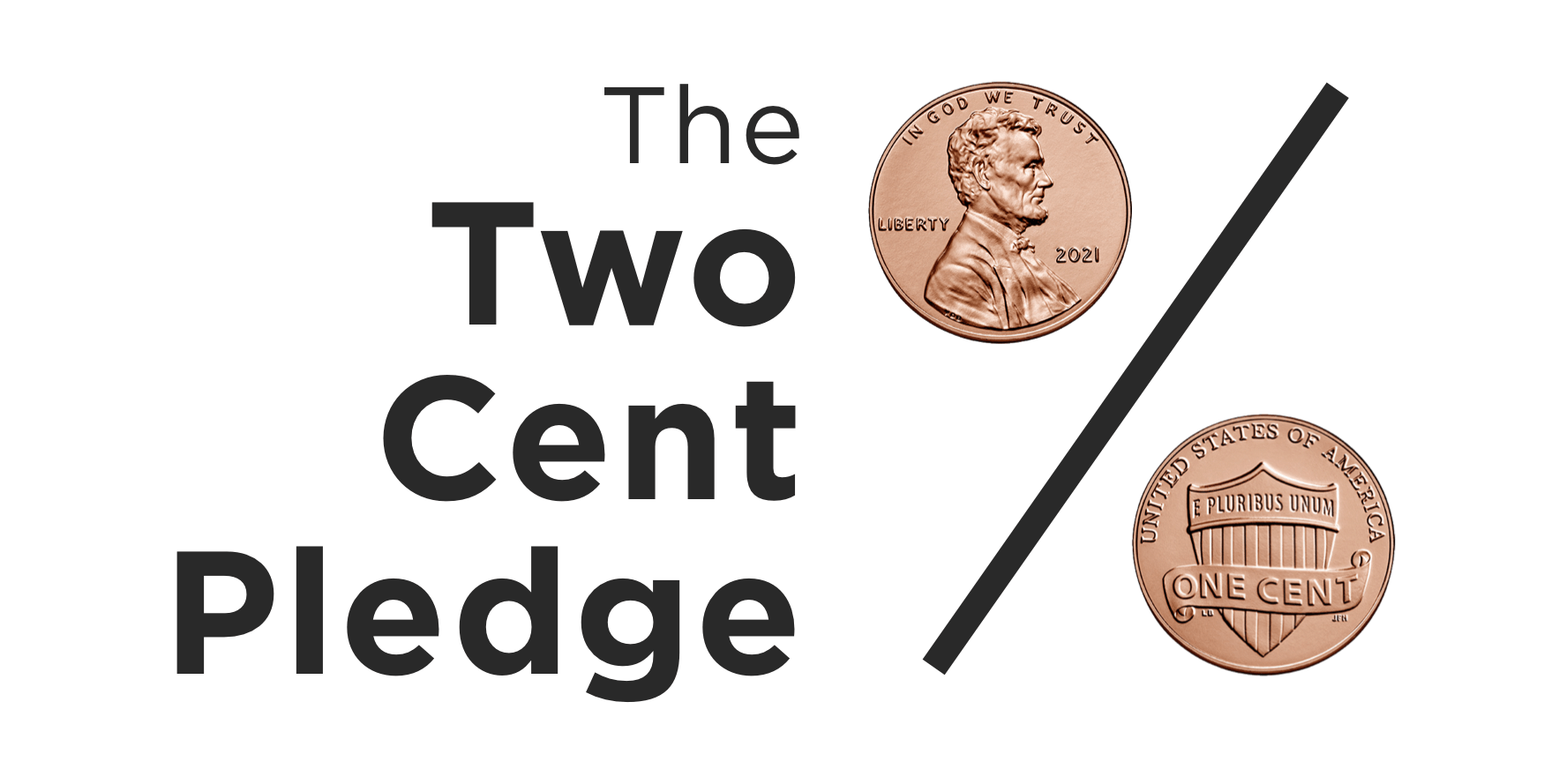Table of Contents

I pledge to give at least 2% of my time and money to charity. I hope you'll join me.
Read this announcement on Medium
Why don't I give more? I've wondered lately. I'm not giving to others as much as I imagined I would, or know I could, or feel I should.
It's simple, really. "Life gets in the way" — or rather, I let it get in the way. I make the occasional donation, and lend a helping hand when others ask. Sometimes, I truly go out of my way. But I must confess that, much of the time, I'm distracted by my own life. I prioritize what's consequential for me, what's on my schedule, what's urgent in the moment.
Maybe you feel the same.
For me, it's helpful to have a straightforward commitment, a rule to live by. So I've made one. I call it The Two Cent Pledge:
I will give at least two percent of my time and money to charity.
The spirit of this is simple. To give your "two cents" is to offer a humble bit of help. Even a little bit can go a long way.
See which charities I'm volunteering for and donating to below.
Two Percent
Two percent may sound burdensome, but it's not. It's a little over a minute of each hour you spend and 2¢ of each dollar you earn.
How much is that in a year? Suppose you work and sleep normal hours, and consider just the remaining time. Two percent of that means 77 hours¹ of volunteering a year, or just 90 minutes a week. And suppose you make $50K a year. Two percent of that means $1K in donations a year, or less than a $3 coffee a day.
Surely we can each give 90 minutes a week and less than a coffee a day to those in need. (And yes, if you make $500K a year, surely you can spare a few more coffees!)
Think of it this way: If tomorrow you had 98% of what you have today, you wouldn't even notice the difference. But for the people who receive what you give away, that 2% could make all the difference.
There's no excuse for not giving your 2%!
Take the Pledge
I hope this can be a community effort. It's more effective, and more enjoyable, to give to others with others. And because the Two Cent Pledge is a percentage, everyone can participate: it asks only for two percent of what you have — no matter how little, no matter how much. You'll always have some amount of free time, however small, and if you have even $1 you can give 2¢ away and be no worse off.
Join me: take the pledge. Give at least two percent of your time and money to charity. Together, our humble two percent can change the world.
(Just my two cents!)
How can you participate? By taking the pledge, following through with it, and sharing it with others! And please consider commenting below which organizations you volunteer for and donate to, so everyone reading this can be inspired by your example.
What am I personally doing? I've started by setting up monthly donations — equal to 2% of my income — to two organizations devoted to trauma care: the Coalition for National Trauma Research (CNTR) and the CPTSD Foundation. And I'm volunteering for Minds Matter, which is dedicated to helping students from low income families prepare for college and beyond.
If there's enough interest, I may someday create a website for The Two Cent Pledge and a list of suggested charities to support. Maybe someday I'll make this a proper organization. But for now, I'd rather spend my resources on the ground helping others, and I hope you will too.
If you have ideas for how to improve the Two Cent Pledge, or if you want to develop new aspects of the project together, feel free to contact me.
Note
- How did I get 77 hours a year?
Suppose you work and sleep normal hours, and consider just the remaining time:
But please understand: The spirit of the Two Cent Pledge is what matters, not the details of the calculation. You decide whether or not to include work hours, whether to use pre- or post-tax income, etc.